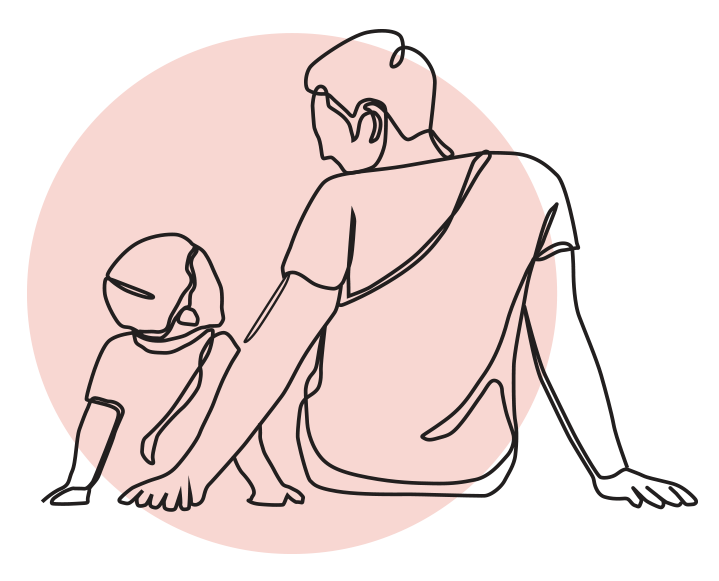Safeguarding Policy
Child in Time is committed to caring for children and young people and protecting from them from harm.
Our counsellors/therapists are qualified and have been trained by organisations offering recognised accreditation for counsellors/therapists. Two of the leading accrediting bodies are the United Kingdom Council for Psychotherapy (UKCP) and the British Association for Counselling and Psychotherapy (BACP). Art Therapists will be registered with the Health and Care Professions Council. All counsellors carry professional indemnity insurance and have Enhanced Disclosures from the Criminal Records Bureau (DBS).
Our online parenting consultations operate in accordance with the ethics and codes of conduct of our training organisations and accrediting bodies, within statutory legislation, following Area Child Protection Committee guidelines.
Child in Time is subject to and/or recognises legal responsibilities in terms of child protection as well as government guidance and local procedures (see appendix I and appendix II). This would originate from any disclosures made by the parent/carer that a child is suffering or is likely to be at risk of harm. This will include disclosures relating to alleged physical, emotional, and/or sexual abuse and/or neglect from self or other and override any confidentiality agreement made between counsellor and client. Our counsellors/therapists are required to update their child protection training on a regular basis.
Parent consultation services should pay due regard to current legislation and guidance, and offer confidentiality within the usual ethical and safeguarding limits. If a safe-guarding disclosure is made, our therapists will speak to clients directly about the next steps and the address provided will enable us to contact local safe-guarding teams.
Appendix I.
Legal/Statutory obligations
Child in Time is subject to and/or recognises legal responsibilities in terms of child protection. These include:
- Duty of care – common law: This is an overall responsibility to endeavour to ensure the safety and welfare of the children, young people and personnel.
- Human Rights Act 1998: This includes the right of individuals not to receive ill-treatment, to privacy and family life; not to be recipients of discrimination.
- Children Act 1989: This lays the foundations for ensuring that the welfare of children is paramount. It states that it is the responsibility of all Local Authorities to promote and safe-guard the children in their area. This includes assessments of children who may be in need and the duty to investigate if it is believed that a young person may be suffering or is likely to suffer significant harm.
- The Children Act 2004: This sets out the organisational responsibilities for child protection.
- Data Protection Act 2018: The statutory responsibility for confidentiality and its role in child protection.
- Freedom of Information Act 2005: This sets out the responsibility for children and young people to have access to information held on them and the responsibility for secure storage of information.
- Safeguarding Vulnerable Groups Act 2006: This includes the responsibility to ensure that all personnel who have contact with children and young people using services from Child in Time have had the appropriate statutory checks made.
Appendix II.
Government Guidance and Local Procedures:
There is government guidance which is, in effect, mandatory (Local Authority Social Services Act, 170, Section 7). There are also local policies and procedures which are compulsory:
- The Children Act 1989 Regulations and Guidance: Several of these volumes have application within child counselling.
- Working together to safeguard children (2023). This outlines the child protection policy in terms of organisations.
- Framework for the assessment of Children in Need and their families (2000). This defines the framework for the assessment of all children who are thought to be in need including the need to be safeguarded.
- Every Child Matters (2003). The government’s aims and objectives in chid care/child protection.
- The London Child Protection Procedures (7th Ed. 2022). The pan-London procedures, issued by LSCB; sanctioned by DCSF.
- The enquiry into the death of Victoria Climbie (2003). This enquiry set out a number of recommendations which have influenced both legislation, policy and procedures in child protection.
Confidentiality and Privacy Policy
We are committed to protecting personal information and being transparent about what we do with it.
We are committed to using personal information in accordance with our responsibilities. We won’t do anything with any service users information you wouldn’t reasonably expect. We are required to provide you with the information in this Privacy Notice under applicable law which includes (but is not limited to):
- the General Data Protection Regulation (EU) 2016/679 (the “GDPR“), and the Data Protection Act 2018
- the Privacy and Electronic Communications (EC Directive) Regulations 2003.
Processing of personal information is carried out by Child in Time which is a company incorporated in the United Kingdom with company number 08537835. We are registered with the ICO.
If you have any queries about our Privacy Notice, please get in touch with our data protection officer:
Email: chloe@childintime.co.uk
Phone:07984462415
Information for parents/carers re personal data
Child in Time is required to collect sensitive personal data in order to provide online parent consultations. This includes name, email address and home address. The latter is only used in the event of a safeguarding concern being raised. See ‘safeguarding’ policy (above) for further information.
Data collected in the pre-session questionnaire is stored safely on our secure site. It is only accessed by the relevant counsellor and is collected in order to focus the session. We are committed to refreshing and interrogating the rationale for the data we are storing.
Confidential session data
Child in Time does not store session information from the parents/carers who attend online parent consultations.
The content of your sessions is confidential and remains between you and your consultant. The only time session content would be shared is in the event of a disclosure leading to a safeguarding concern. This would include disclosures relating to alleged physical, emotional, and/or sexual abuse and/or neglect from self or other which overrides any confidentiality agreement made between counsellor and client. See safeguarding policy for details.
Cancellation Policy
Sessions are paid at time of booking via stripe secure payment. Sessions can be cancelled with a full refund up to 24hrs before your session starts. After this time, no refunds will be made as it is too late for your slot to be allocated to another parent.

